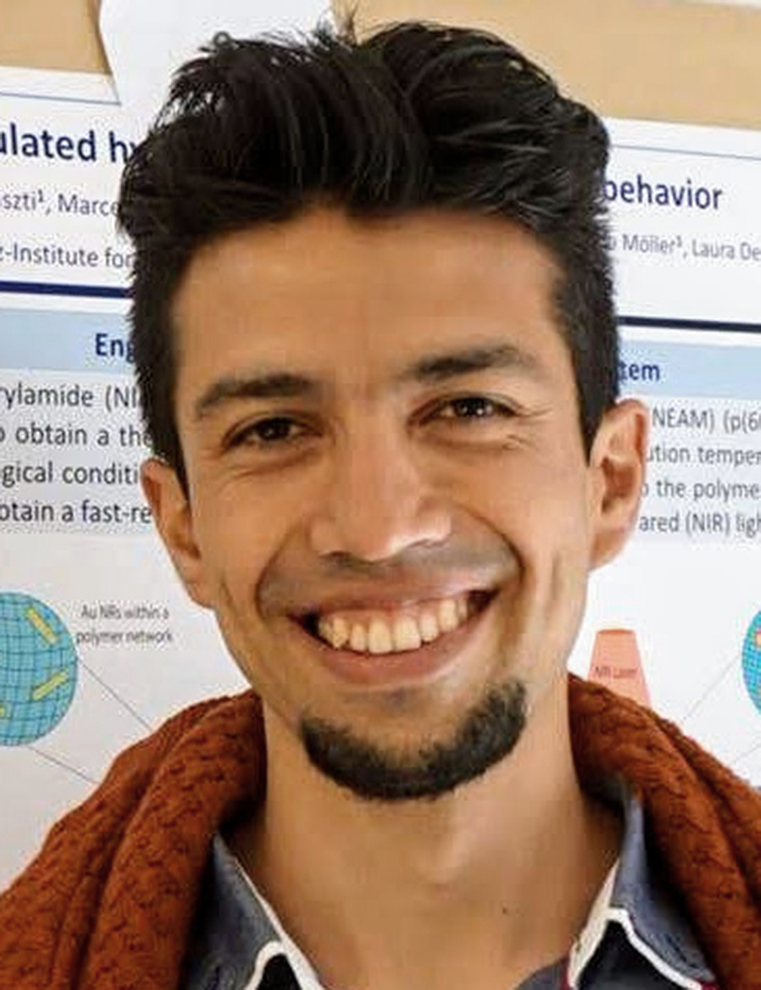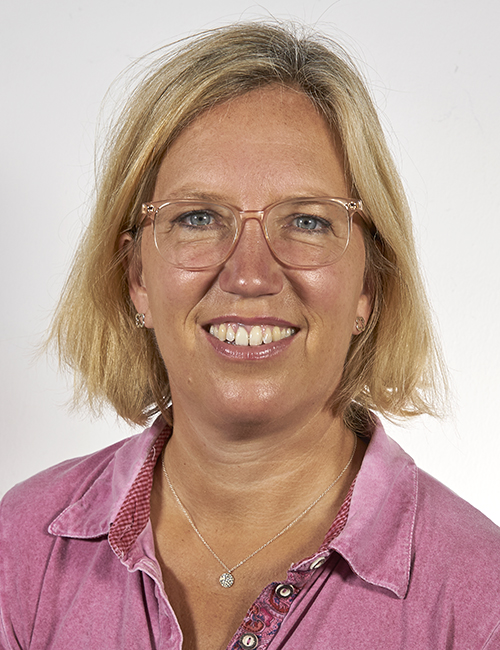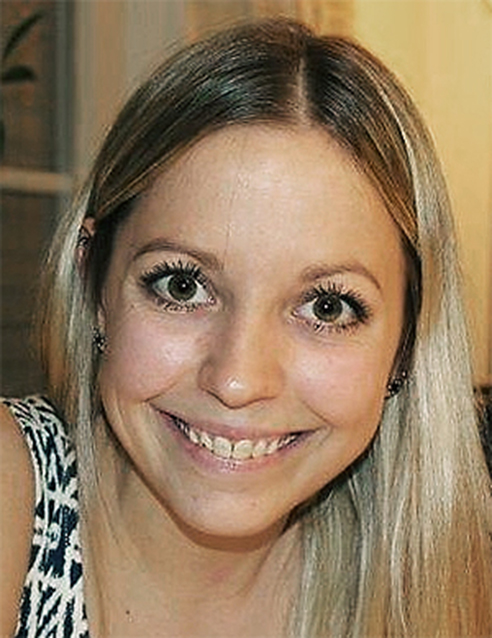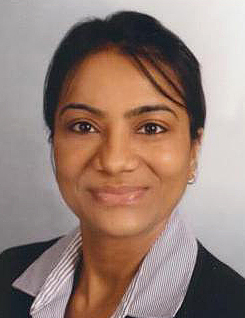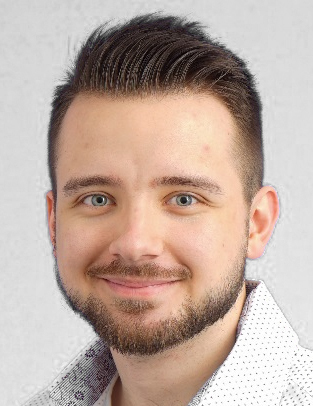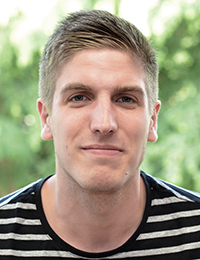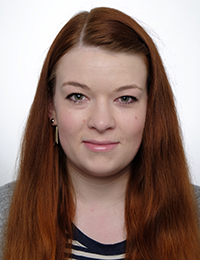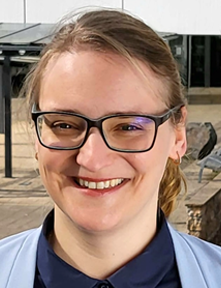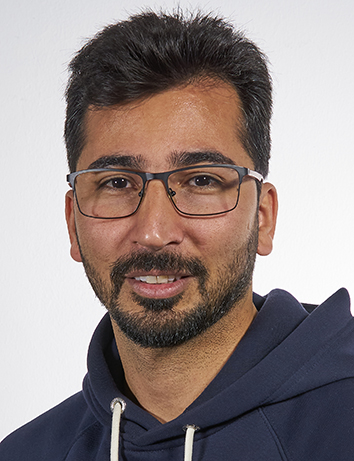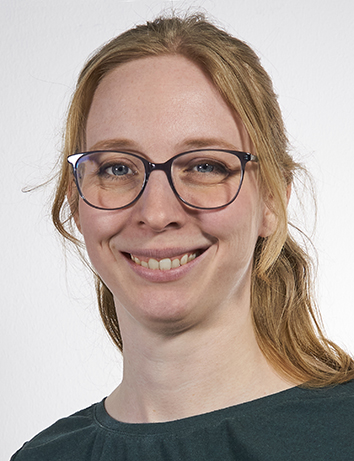Establishment and characterization of in vitro systems to study human hormone-dependent endometrial epithelial plasticity and mechanics
Institute of Molecular and Cellular Anatomy (MOCA)
What is the next step of your career?
I’ll start a position at the “Deutsche Krebshilfe” as press officer for the scientific department. During my time as a doctoral student, I had the chance to use the time outside the lab to dive a bit into the topic of public relations and scientific communication. For example, I co-organized an award for young scientists, took care of ME3T’s social media channels and wrote articles for the magazine “Laborjournal”. This showed me that, next to the lab, science communication is just as important and I would be happy to use the network I developed within ME3T for my future work.
What do you think is special about ME3T?
I really enjoyed that we as doctoral students were embedded in such a broad network. Everyone struggles from time to time, but we always knew that we had strong support. Within ME3T, everyone was approachable and hierarchies were not too strong which makes is much easier to establish collaborations that can significantly advance your own research. This co-operative atmosphere also helped me to see things from different angles. I think, it is especially helpful in relatively new topics like mechanobiology, if you don’t stick to the biologist’s or the engineer’s perspective.
What would you advice the “next generation” of ME3T?
Get to know your colleagues, because this makes communication much easier. But also, don’t be afraid to use your network even if you think, you don’t really know a person. For example, you are still connected to the Alumni via ME3T and they might be able to help you – inside the lab or career-wise. Talk to people about what worries or scares you – don’t pretend everything is perfect. Take breaks, enjoy vacations and try to see the fun side. Finally, take the “annoying tasks” such as project development planning serious, because they will help you realize how far you already got.
The role of keratin intermediate filaments in force handling of epidermal tissues
Institute of Molecular and Cellular Anatomy (MOCA)
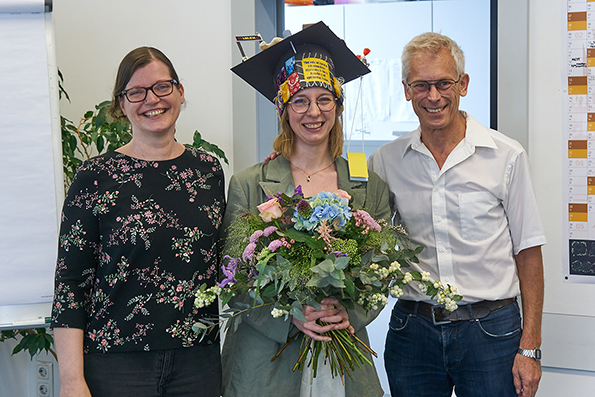
What was your experience of being a part of ME3T?
Being a part of ME3T was one of the best parts of my PhD years. I think it helped me to have such a strong system behind me. I got a lot of input from all sides and was able to find my direction a bit easier. Of course, sometimes there's also the danger of getting lost in ideas. Then you see what great techniques exist, and of course I want to try out all of them. But you learn to first make a plan, talk about it with you colleagues and then build up appropriate collaborations where it makes sense. And that really bonded us together as doctoral students.
What advice would you give to new PhD students?
I think you should try to see more than just the lab right from the start. In other words, don't start by cancelling everything that happens outside the lab because you think you have experiments to do. Quite often those are the things that help you further in the lab, because you've learned something new or met someone who can help you. Sometimes you have to take a step back and press pause. Even if you can't believe it at the time, the world doesn't end if something goes wrong. Sometimes you just have to check things off and move in a new direction.
What surprised you the most during your time as a doctoral student?
I found it super fascinating to work with so many people from so many scientific backgrounds. In the beginning, it was sometimes a bit hard to understand each other and it was not always obvious to see the connection between the projects. But that actually converged quite a bit over time. We developed a common language. And I realized for myself how important that is, and then it surprised me how much I enjoyed helping to shape that. That I enjoy communicating science in an understandable way.
Altering the mechanical anisotropy of the Anisogel to affect cell behaviour
De Laporte Research Group @ DWI – Leibniz-Institut für Interaktive Materialien
What is the next step of your career?
I was able to get one of the ME3T Postdoc fellowship, which gave me a new perspective. So far, there had always been a major framework laid out by the PIs and now I was able to write something on my own. It is very interesting to see how my idea goes along, the pitfalls and problems that come with it. This is an eye opening period for me. It helps me realize my scientific potential, what I am able to do and to really evaluate myself and where I would fit in.
What did you learn during your PhD that might help you in your future career?
I learned that you should not doubt yourself so much. We have been chosen for this position, so we are good enough. All our problems and questions are valid and should be brought to the attention of people. Another good exercise for me was to deal with the delegation of several students. Starting from the selection process to deciding which project would fit and to see that each person is different and to teach them accordingly. And of course I learnt how to organize myself to be available for people and how to solve problems that came up.
Was there any situation during your time in ME3T that inspired you?
What was really very interesting for me was the evaluation of our graduate school that we had lately by the DFG. To see how people came together for this one goal. You know, when ME3T was originally conceptualized, I wasn’t there yet. But now I was involved and saw how everyone – PIs, doctoral students, administrative staff members, even post docs that already graduated - sat together, helped each other, putting aside all their stuff to discuss and build this idea towards something bigger. This was a new and very interesting experience for me.
Jana Schieren/Anna Sternberg
Numerical analysis of bioprinting-related shear stress and hydrostatic pressure during acoustic droplet ejection method versus microvalve-based technique and experimental investigation of their effects on epithelial and endothelial cells
Department of Dental Materials and Biomaterials Research
What did you learn within ME3T?
ME3T helped me to get to know Germany faster. You go into a new culture, you experience a lot of new things, things you have to learn, right? Different behaviors, different ways of talking and communication, bureaucracy and all the other factors that you experience when you are coming from another culture. So I learned how to communicate with different people from different backgrounds. Eventually, it helps you to understand that the way you are looking at problems is not the only possible way.
Why do you think interdisciplinarity is important in life sciences?
Most of the topics that we are going to study in the future will be a combination of different disciplines. If you think about tissue engineering, it involves a combination of cells, which is biology. The extracellular matrix, it’s chemistry. And if you want to build native tissues in the lab, then you have to know about engineering as well. If you want to be the leader of a multidisciplinary group, you need to know the different topics in order to connect the different people and their languages to each other. And this is why I try to learn as much as I can, at least to know the keywords to be able to communicate and to know where I am heading to.
What inspired you the most during your PhD?
We had a one week lunchtime symposium organized by ME3T, where we invited different companies to introduce possible career paths. That was a really great week, to learn how working outside of academia can look like. I did not have any industrial experience before, so it gave me a good impression of that. At that time I was struggling if I wanted to stay in academia or go into industry. It was really inspiring for me to learn during the symposium that I just have to be open for opportunities and see what happens for me.
Jana Schieren/Anna Sternberg
Respiratory tissue engineering – development of a respiratory mucosa equivalent
BioTex – Biohybrid & Medical Textiles
What is the next step of your career?
I will start a postdoc position at the Ruhrlandklinik in Essen in the Department of Experimental Pneumology. This will be a little bit more basic research than I'm used to, investigating asthma, cystic fibrosis, and some rare lung diseases. I am really looking forward to this. I already know the group, but starting there and being part of the team will be definitely exciting and also challenging, I guess.
Was there any situation during your PhD or with ME3T that inspired you?
That’s not a very easy question. What I found very inspiring (and maybe that was because of the pandemic situation and being stuck in the lab for a long time), I mostly liked the conferences I took part in. When I think of Italy [Nanoengineering for Mechanobiology 2022], it was not that much connected to what I did during my PhD. But you breathe a scientific atmosphere where you meet other people who are so much interested in scientific questions that they travel around the world to discuss about. Also, I went to TERMIS in Poland this year [2022] and that one was also full of people who wanted to create replacement tissue. This was really inspiring, meeting a lot of scientists with their own backgrounds and ideas and the discussions that arise from that. When I came home from these events, I was like, ‘Science is cool.’.
Which advise would you give to a new PhD student?
I would advise to not give up. There will be challenges and there will be huge challenges and I have had some times where I struggled and really was asking myself whether this is the way to go. And now I'm really glad that I stuck to it. I moved on and continued. And: ask for help! Be active and tell your supervisors what you need. I know, in the beginning you might struggle with this. I think there are a lot of students who do not have the courage to go to their supervisors and say, ‘OK, I really, really need you now’ and I can only advise: do that.
Jana Schieren/Anna Sternberg
A Light-Modulated Hydrogel System To Analyze Cell Durotaxic Behavior In A Dynamic Manner
De Laporte Research Group @ DWI – Leibniz-Institut für Interaktive Materialien
What did you learn in ME3T and how will it help you proceed in your further career?
I think graduate schools like ME3T offer a very interdisciplinary space for students to really dive into different topics. This is very important nowadays, because a lot of projects and collaborations are not done within a specific group or institute, but you have to cross borders and try to understand how the other scientists are thinking. You have to make your message clear to all of them, which is challenging, but very useful.
What do you want to tell your fellow PhD students?
Now that I look back, the PhD actually gave me a lot of tools, which at the given moment often seemed like rather time-consuming tasks (e.g. organizing conferences/meetings, supervising students etc.) These kind of things seemed obvious but looking back, I realize that I learned so much from all of them. Sometimes we need to zoom out, take a step back to see what we can take from each experience and how we can translate this into something that actually helps us grow, not only as a scientist, but also as a person.
What do you wish you’d known when starting your PhD?
I guess knowing yourself is a critical step for being successful. This took me some time, but once I reached that level, I knew what I wanted and what I didn’t want. I know my strengths and weaknesses and how I could tackle all of these difficulties to not really see them as a problem but as an invitation to work on myself or develop certain skills. You should be aware of what you’re doing and really enjoy the process. Not only try to get to the finish line, but enjoy the marathon as well.
Jana Schieren/Anna Sternberg


